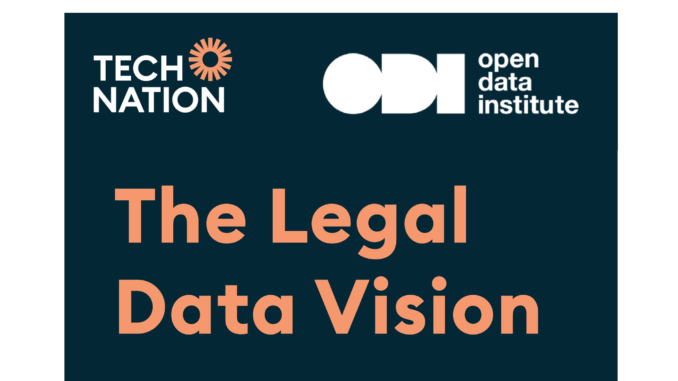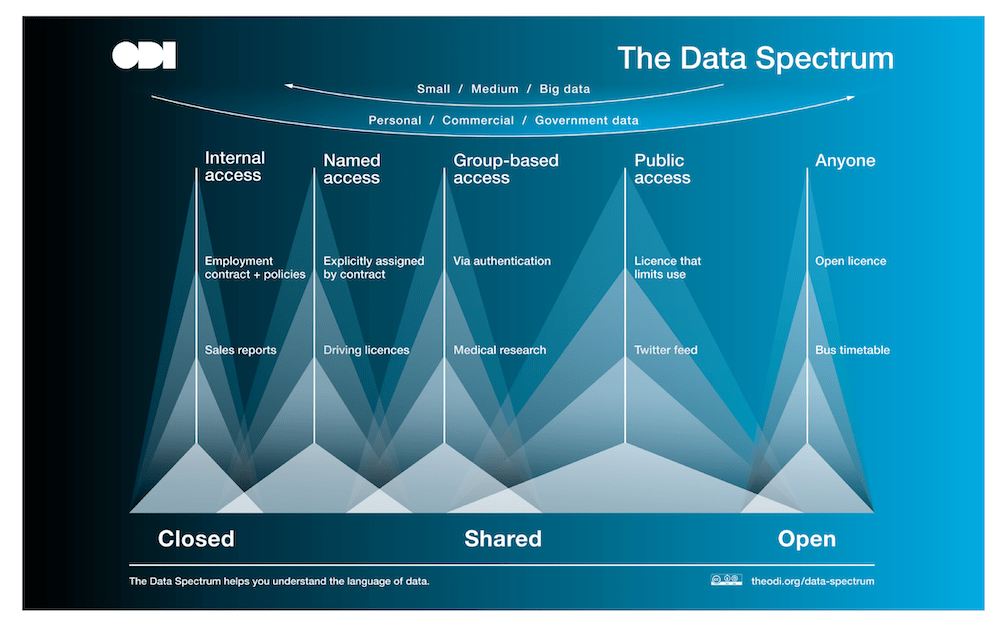
LawtechUK has teamed up with the Open Data Institute (ODI) to launch ‘The Legal Data Vision’, which is a project to promote the better use of information in the legal world.
Or, as they put it, this is a ‘shared aim for the legal sector to prioritise the responsible use of and access to legal data to drive innovation, uphold trust and deliver outcomes that benefit society’.
It builds on previous work by the taxpayer-funded LawtechUK group to help legal tech companies gain access to data that may help them to develop products.
Access to, and better use of, legal data matters because as they point out:
- Only 20% of lawyers say their organisation captures data effectively,
- 80% of General Counsels are not confident in their department’s ability to identify and manage legal risk,
- 67% of innovators need access to data to develop transformative legal solutions.
All well and good, even if ‘legal data’ is a very broad term that captures of lot of things. But, what actually is this? Primarily this is what the groups call ‘a call to arms’, and the short report they provide sets out some frameworks, as well as examples of where legal data can matter (see below).
They also include a handy chart by the ODI about the different types of data, and provides examples, ranging from the most confidential to truly open for all.

Jenifer Swallow, LawtechUK Director at Tech Nation, said: ‘The Legal Data Vision offers a shared purpose, with its development enriched by contributions from across and beyond the sector. The aspiration is for others to prioritise the data opportunity and collectively work together to create a legal data ecosystem that allows innovation to thrive, upholds trust and delivers on the needs of those the legal sector serves.’
And, Diana Szasz, Data Ecosystems and Innovation programme lead at the ODI, added: ‘Improving access to data has the potential to transform the legal sector, from supporting the development of exciting innovation, to increasing trust and transparency. Building strong and trustworthy data ecosystems that can deliver value to businesses and society requires collaboration from a wide range of stakeholders, and we welcome LawtechUK’s leadership in this area.’
As to how this has an impact, well, as with all things legal tech and innovation, you cannot make people invest time in things they don’t really want to focus on. But, setting out reasons for the better use of legal data and its beneficial opportunities can only help.
Examples of how data can be harnessed in the legal sector:
The opportunities of increased insights
• Insights from historic contracts inform decision-making and help manage risk, such as understanding aggregate or typical liability exposure, flagging anomalies or contracts outside compliance and risk tolerance, identifying revenue opportunities, and automating reporting or linking to data between systems.
• Collective access to such contract insights provides a greater range of intelligence, to reduce delay, complexity, and cost in negotiations, and help quantify risk, by identifying market standards and trends. Linking this through to legislation and court data can further support decision-making, for example by identifying contract clauses that result in court action and of what quantum.
• Organisations are seeking to understand, track and address environmental, social and governance (ESG) risks and take increased responsibility for ESG. Sharing insights on ESG across the legal community can help address the collective challenges, e.g. an open source ESG risk database.
The opportunities of increased supply efficiencies
• Standardising work requests enables insights to be gathered from structured data to improve operational efficiency. For example, structured intake forms capture and evaluate client demand, repeat requests, and opportunities for automation.
• A common lexicon for describing legal matters and data would help the evaluation of what a piece of legal work should cost, and transparency and trust between legal practitioners and their clients. It could also be used to develop systems for repeatable legal processes and technology to streamline services and help identify new business models and ways of working.
• Legal service provider performance data, and information about quality standards and statistics covering diversity and inclusion, sustainability etc, enables clients to benchmark, compare and evaluate the services they receive from different providers. The same data enables service providers to evaluate their own performance, report to clients and regulators, and demonstrate their standing in the market.
• Standardised labelling, data capture and protocols supports interoperability between applications and facilitates data portability between partners and suppliers.
The opportunities of developing legal tech
• Legal data can be used to train and refine machine learning and artificial intelligence algorithms, build high quality, labelled data sets and improve third-party legal tech solutions. It can inform the development of in-house tools, new and improved products, services and processes. It can be used to build legal tech solutions to address unmet legal needs and access to justice.
• For example: (a) data from commercial and corporate agreements for the development of contract review tools for small businesses, (b) law firm complaint data for tools to help consumers choose the right legal professional, and (c) data from tenancy agreements and employment contracts can be used to develop DIY tools to help consumers understand their rights and responsibilities when dealing with landlords or handling employment grievances.